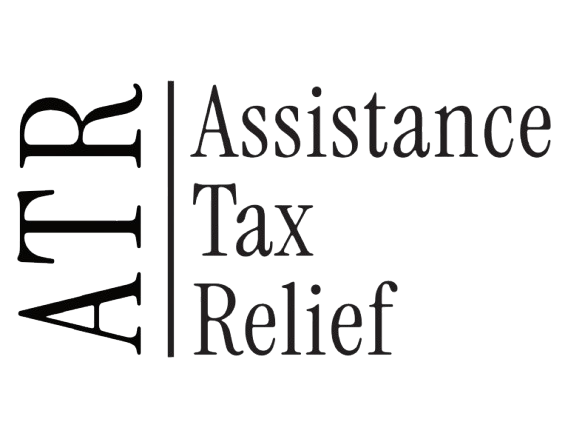State Tax Debt vs. IRS Tax Debt: What’s the Difference?
When most people hear “tax debt,” they think of the IRS. But for millions of taxpayers, state tax agencies are just as big of a problem—and in some cases, they can be even more aggressive.
If you’re struggling with back taxes, it’s important to understand that the IRS and your state operate separately. That means you may owe both, and the strategies to resolve one don’t always apply to the other. Here’s a closer look at how IRS debt and state tax debt compare.
1. Who You Owe: IRS vs. State Agencies
IRS Debt → The IRS is the federal tax authority, responsible for collecting income taxes for the U.S. government. If you earn income anywhere in the country, you may owe the IRS if you don’t file or pay correctly.
State Debt → State income taxes are collected by each state’s Department of Revenue, Franchise Tax Board, or Tax Commission. For example, California has the FTB, New York has the Department of Taxation and Finance (DTF), and Illinois has the Department of Revenue (IDOR). Each operates independently of the IRS.
Some states (like Texas, Florida, and Nevada) don’t have an income tax, so residents there don’t worry about state income tax debt. But in most states, taxpayers can find themselves owing both the IRS and their state at the same time—doubling their financial stress.
2. Collection Powers
Both the IRS and states have powerful tools to enforce payment, but states often add penalties the IRS can’t.
IRS Collection Powers:
Wage garnishments
Bank account levies
Property seizures (real estate, vehicles, assets)
Federal tax liens
The IRS typically follows a predictable process with multiple warning letters before seizing assets.
State Collection Powers:
States often go beyond the IRS and can use unique local tools to pressure taxpayers. Depending on where you live, that could mean:Driver’s license suspension (e.g., New York, California, and several others).
Professional license revocation (impacting lawyers, doctors, contractors, etc.).
Vehicle registration denial (you can’t renew your plates until you resolve your debt).
Turning your account over to state-contracted private collection agencies, which can be more aggressive in calling and pursuing you.
For many taxpayers, losing a license or having their car registration blocked can be more devastating than a wage garnishment.
3. Statute of Limitations
IRS: The IRS has a well-defined rule—they generally have 10 years from the date your tax was assessed to collect. After that, the debt is legally uncollectible (called the Collection Statute Expiration Date, or CSED). Certain events can pause or extend the clock, like bankruptcy or leaving the country, but the 10-year rule provides a clear timeline.
States: This is where things vary widely:
California → No statute of limitations on collecting state tax debt. They can pursue you indefinitely until it’s resolved.
New York → Has a 20-year statute of limitations, which is twice as long as the IRS.
Other states → Some follow the IRS’s 10-year limit, while a few have shorter timelines.
This means if you owe state tax debt, you may not be able to “wait it out.” In some places, the state can keep coming after you forever.
4. Relief Programs
IRS Relief Options: The IRS offers several nationwide programs, including:
Installment Agreements (monthly payment plans).
Currently Not Collectible (CNC) status (if you can’t afford to pay).
Offer in Compromise (OIC) (settle for less than you owe if you qualify).
Innocent Spouse Relief (if the debt is due to your spouse or ex-spouse).
State Relief Options: States sometimes offer similar programs, but with stricter requirements:
Installment Agreements are common, though states may require larger down payments than the IRS.
Offers in Compromise exist in some states (like California and New York), but approval rates are much lower than with the IRS.
A few states periodically run tax amnesty programs, giving taxpayers a limited-time opportunity to settle for less or avoid penalties.
It’s important to remember: solving your IRS tax debt does not solve your state debt. You must negotiate separately with each agency.
5. Consequences of Ignoring State Debt
If you ignore IRS debt, the consequences are serious—but state debt can hit you in more personal ways. Ignoring state debt may lead to:
Suspended driver’s license → making it illegal to drive until you resolve your balance.
Professional license suspension → directly threatening your career if you’re a doctor, lawyer, contractor, or hold another licensed profession.
Vehicle registration blocks → preventing you from renewing plates, which can cause further legal trouble if you keep driving.
Aggressive local collections → many states outsource old debts to private collection agencies, adding another layer of pressure.
For taxpayers who rely on their ability to drive or their professional license to earn a living, these consequences can be life-altering.
Final Thoughts
IRS and state tax debt are not the same thing. While the IRS has broad federal powers, state tax agencies often act faster and hit harder with local enforcement tools. To make matters more complicated, state debts can last longer—or indefinitely—and don’t go away just because you resolved your IRS balance.
If you’re dealing with both, it’s critical to create a strategy that addresses federal and state debt separately. Working with a tax professional who understands both sides can help you stop collection actions, protect your income, and get back on track.
Still Have Questions?
📅 Schedule a Free Consultation: www.assistancetaxrelief.com/appointments
📧 Email: adam@assistancetaxrelief.com
📞 Phone: (720) 383-6160
🕒 Hours: Mon–Fri: 9AM–5PM | Sat by Appointment | Closed Sundays
